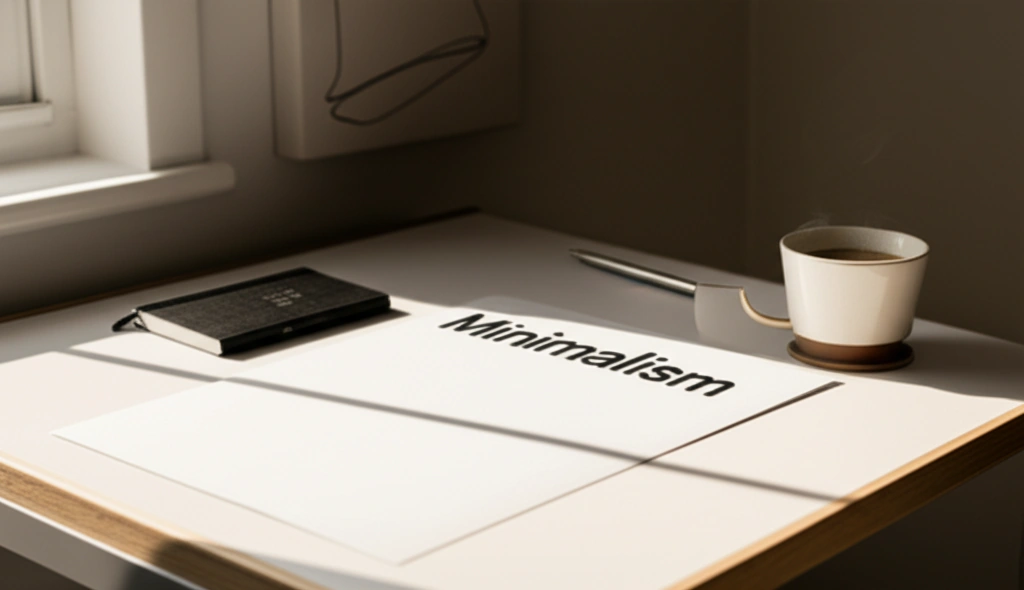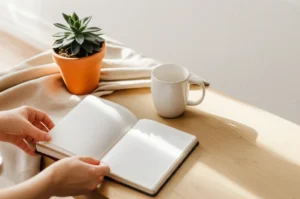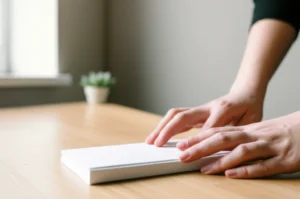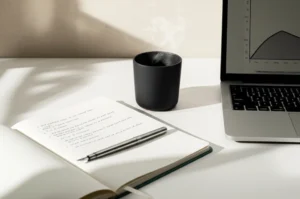Let’s be honest, when was the last time you stared at a cluttered room and thought, “There has to be a better way”? Maybe you Googled “minimalism research paper” while stepping over toys, tripping on shoes, or just feeling overwhelmed by a sneaky avalanche of stuff. That’s real. Living with less sounds blissful—until reality barges in with noise, mess, and daily chaos.
So, why are so many of us hungry for answers about minimalism? We want more than pretty Insta pics of empty shelves—we crave proof. We want to know what research on minimalism actually says: does it really make us happier, calmer, or more focused? Or are there surprises (maybe even drawbacks) buried in the studies and stories?
Today, I’m breaking down what a “minimalism research paper” is, the actual findings, the honest-to-goodness pros and cons (hello, “disadvantages of minimalism”), plus my own two cents as someone who’s wrangled clutter and wrestled guilt over giving away Grandma’s teacups. Ready to dig in and see what the data—and real life—have to offer?
Minimalism Meaning: Less Stuff, More Life?
Okay, before we dive into the nitty-gritty science, let’s nail down what minimalism even means. At its core, it’s not just donating another garbage bag to goodwill. A minimalism lifestyle definition is about deliberately choosing less, letting go of excess, and focusing deeply on what really matters—relationships, mental space, and purpose, not just aesthetics or emptiness[3].
Minimalism is often seen as the opposite of materialism (that “more stuff equals more happiness” trap). Picture this: minimalism vs materialism isn’t just a fight between an empty to-do list and retail therapy. It’s a whole different mindset. It’s saying, “Who am I when I’m not buried in stuff?” But wait—if it was that simple, would we even need a research paper on the subject?
What The Research Really Says
This is where it gets eye-opening. You might assume research on minimalism is just people bragging about their tidy closets. But actual minimalism research papers dig way deeper. They’ve interviewed everyone from hardcore minimalists to regular folks tired of clutter, and analyzed what happens to our minds and relationships when we start letting go[1][4].
A major takeaway? Minimalism and mental health often go hand-in-hand—but not always in the way you’d expect. People report more autonomy, “mental space,” and a boost in mood, sure. Some studies link minimalism with greater life satisfaction, meaning, and even stronger personal relationships[1][4]. You know that feeling when you finally clean a drawer and can actually breathe again? Imagine that on a bigger scale.
But here’s the kicker—these benefits aren’t automatic. Research points out that how you practice minimalism (and whether it’s your choice or forced by circumstance) matters a lot[4]. Millennials, for example, might be drawn to less stuff for environmental reasons or because it just fits the times[2]. If you started cleaning because of a TikTok challenge but your partner’s not on board? That can get messy (and I’m not just talking about the laundry).
The Psychology Behind Minimalism
Why does our brain sometimes crave clean lines and open space, but melt into anxiety at the thought of parting with a childhood trophy? Turns out, a ton of research is devoted to the psychology of minimalism—exploring things like autonomy (being in the driver’s seat), competence (feeling capable), and positive emotions that come from letting go. A study in the Journal of Positive Psychology found that minimalism works best when it’s voluntary and fits your values—not just an empty social trend[4].
And it’s not just about stuff. Minimalism can mean clearing mental clutter, too—setting boundaries, saying “no,” and breaking the grind of always seeking more. It’s about mental space, not just physical space.
Materialism Vs Minimalism: It’s Not Just Stuff
| Materialism | Minimalism |
|---|---|
| More possessions = more status or happiness | Less is more: focus on meaning, freedom, connections |
| Driven by consumer culture & advertising | Often a conscious response against consumerism |
| Can lead to clutter, debt, stress | Linked with clarity, reduced stress, sometimes joy |
| External validation | Internal fulfillment |
Sound simple? Not so fast. Real life is way messier, especially if you’ve ever tried living out your “minimalist” values with children, roommates, or family members who view old magazines as treasures. That’s where the research really helps us dig deeper, beyond idealistic Instagram posts.
The Joys (And Real Risks) Of Minimalism
Let’s talk downsides for a minute. Minimalism can look like the holy grail for stressed-out folks, but yes—there are real disadvantages of minimalism. Ever regretted donating something, only to need it a week later? Or maybe you’ve felt isolated because the people around you don’t “get it.” Research shows that, for some, minimalism sparks social tension (think: family heirlooms gone missing), a sense of loss, or even guilt over privilege—after all, choosing to have less isn’t the same as having to have less[3][4].
Some experts also warn that hyper-minimalism—the drive for a “perfect” clean space—might make certain folks obsessive or anxious (think of it as the lifestyle equivalent of cleaning your hands way too much). Others point out that if your minimalism isn’t self-chosen, it can quickly start feeling like deprivation, not liberation[4].
But I’ll tell you what’s refreshing: minimalism still seems to offer more gains than losses, especially when you take a personalized approach. Think flexible, not fanatical. The most helpful minimalism research papers always weigh both sides—so, if you’re tackling the beast yourself, don’t forget to ask: what’s my sweet spot?
How To Write A Minimalism Research Paper (And Steal Some Wisdom For Life)
Thinking of diving into the academic world—or just curious to learn more? Here’s how you can shape a killer minimalism research paper (and even use those insights for yourself!):
- Define your terms: Don’t just toss around “minimalism.” Be clear—are you talking physical stuff, mental clutter, environmental minimalism, or something else? For a deep dive, check out the latest minimalism lifestyle definition as a solid starting place.
- Describe your why: Research works best when it answers a real question. Are you exploring the psychology of minimalism, its impact on wellbeing, or maybe the clash of minimalism vs materialism?
- Pick a method: Will you interview self-proclaimed minimalists? Analyze surveys? Track the emotional changes as people declutter over a few months? Both qualitative (stories, interviews) and quantitative (stats, scales) work great in this field[1][4].
- Look for balance: The best research doesn’t preach. Highlight what works—and what doesn’t. Share success stories, but also moments when minimalism flops (I once threw out a spatula and then had to flip pancakes with a spoon. Regrets? Many).
- Give practical examples: Lived experience is gold—share real stories, observations, and maybe even a blunder or two. Researchers say it’s the best way to connect the dots from theory to actual, messy life.
If you’re more of a reader than a researcher, check out a few heavy-hitter studies. “Towards a Theory of Minimalism and Wellbeing” explores how actual minimalists feel about their lifestyle and pinpoints what they get out of it (spoiler: it’s more than clean closets)[1]. A more recent systematic review of minimalism and wellbeing covers why living simply can be so good for our mental health—if, and only if, we make the choice on our own terms[4].
Experience Speaks: Stories From The Decluttered Side
Want proof that lived experience matters? Here’s a glimpse behind the curtain.
When I first tried minimalism, inspired by a viral documentary, I started with socks. Simple enough, right? By week three, I was eyeing my kids’ craft supplies and wondering, “Who really needs 35 half-dried markers?” Cue drama. Letting go is freeing…until your toddler demands that one crayon you just donated.
Researchers say this daily fight between our craving for order and life’s beautiful chaos is actually where the real breakthroughs happen[1][4]. You get better at asking, “What do I value most?” You become okay with imperfection, and maybe even a little proud of your mismatched kitchenware.
And in case you need more ideas or want to keep learning, I’d nudge you to check out how modern science tackles the psychology of minimalism for some “aha!” moments and actionable gems.
Trust, Transparency, And Taking It Further
Let’s talk about why all this matters. You’re not looking for shiny, one-size-fits-all answers. You want transparency. The best minimalism research paper—or heck, blog post—lays out the evidence, shares both sunny and stormy results, and draws a line between “This is what the science says” and “This is what works for real people.”
If you find yourself feeling skeptical, that’s good! Ask: Who did the research? Were the benefits hyped, or did they show the hard parts, too? Reliable studies usually point out what went well and what might be a little too rosy, and they make room for your own story in the mix.
Oh, and if you’re writing your own paper (or just sharing hard-won lessons with friends), be honest about what didn’t work. Did minimalism make one week less stressful—and the next one just a different kind of hard? That’s valuable, too.
Minimalism In Practice: Bringing It Home
If you’re itching to put research into action, start small. Test the waters: clear one shelf, say “no” to an impulse buy, or try a digital detox. The science says that minimalism is most powerful when it’s flexible, values-driven, and uniquely yours[2][4]. Forget “rules.” The best results come when you use research as a flashlight, not a set of marching orders.
Invite your family or roommates into the conversation instead of springing a surprise declutter session. Use humor. Share stories. Remember, even seasoned researchers admit that living a minimalist life with toddlers (or messy partners, or an emotional attachment to old T-shirts) is far from easy—and that’s okay.
Conclusion: Finding Your Sweet Spot With Minimalism
Whew—still with me? Here’s the upshot: a great minimalism research paper teaches us that the road to “less” isn’t always straightforward. Yes, the benefits can be huge—less stress, more meaning, a bit more breathing room both literally and emotionally. But it also comes with challenges, tough conversations, and the occasional regret over that one thing you donated too soon.
If you’re researching, writing, or just experimenting at home, aim for curiosity and compassion. Look at both the ups and downs. Stay open to course-corrections. And, above all, design your own version of “enough.” The science will keep evolving, but your real, everyday experience? That’s where the most valuable insights live.
So what do you think? Are you team “less is more,” or do you find comfort in a little chaos? Share your stories, your oops moments, or your proudest minimalism wins—trust me, you’re not alone in this wild, wonderful struggle for balance!











